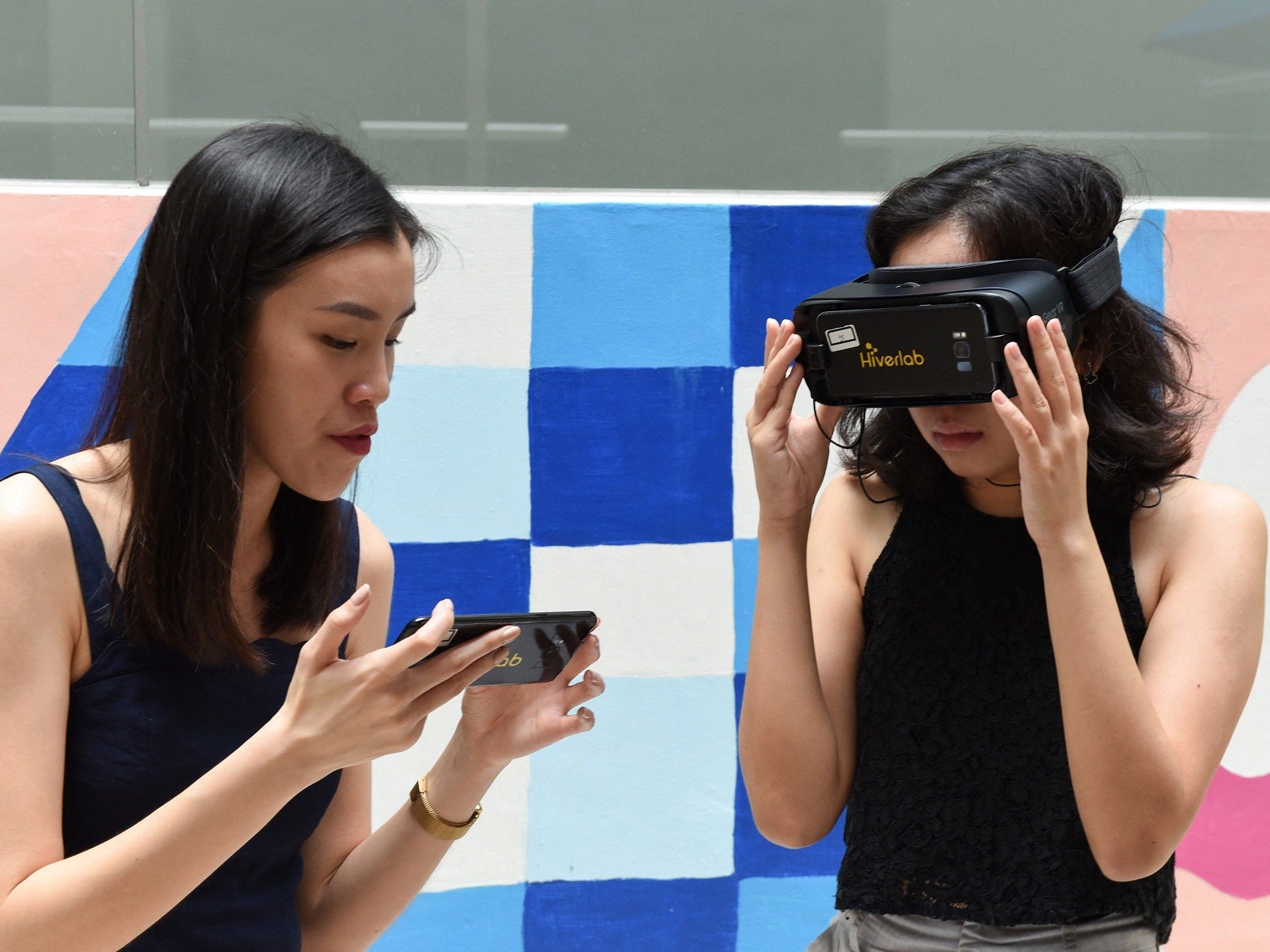Just 1% of teens use VR regularly in latest blow for Meta
Mark Zuckerberg has bet billions of dollars on virtual reality being the next big thing

Less than 1 per cent of US teenagers regularly use virtual reality headsets, according to a new survey.
The lack of interest in the technology is the latest setback for Meta boss Mark Zuckerberg, who is spending billions of dollars in an effort to connect the world through a metaverse accessed with VR.
The survey, released by Piper Sandler this week, revealed that less than a third of teens polled owned a VR device, while only 4 per cent of those said they actually used it daily.
“To us, the lukewarm usage demonstrates that VR remains ‘early days’ and that these devices are less important than smartphones,” Piper Sandler analysts wrote.
The survey, which polled 5,690 teenagers in the US, also found that only 7 per cent of respondents had plans to purchase a VR headset, while more than half said they were either unsure or uninterested.
Meta is expected to release a new virtual reality headset later this year called the Quest 3, which is anticipated to cost around $500.
The company saw its value plunge by more than 60 per cent in 2022, partly as a result of Mr Zuckerberg’s plan to pivot to the nascent metaverse industry.
In an interview last June, the tech boss claimed the technology would be bigger than any of its other businesses, which include Facebook, Instagram and WhatsApp.
“We hope to basically get to around a billion people in the metaverse doing hundreds of dollars of commerce, each buying digital goods, digital content, different things to express themselves,” he said.
“So whether that’s clothing for their avatar or different digital goods for their virtual home, or things to decorate their virtual conference room, utilities to be able to be more productive in virtual and augmented reality and across the metaverse overall.”
Meta’s Reality Labs unit lost $13.72 billion in the last year, with the company warning that “operating losses in 2023 will grow significantly year-over-year”.
Join our commenting forum
Join thought-provoking conversations, follow other Independent readers and see their replies
Comments
Bookmark popover
Removed from bookmarks